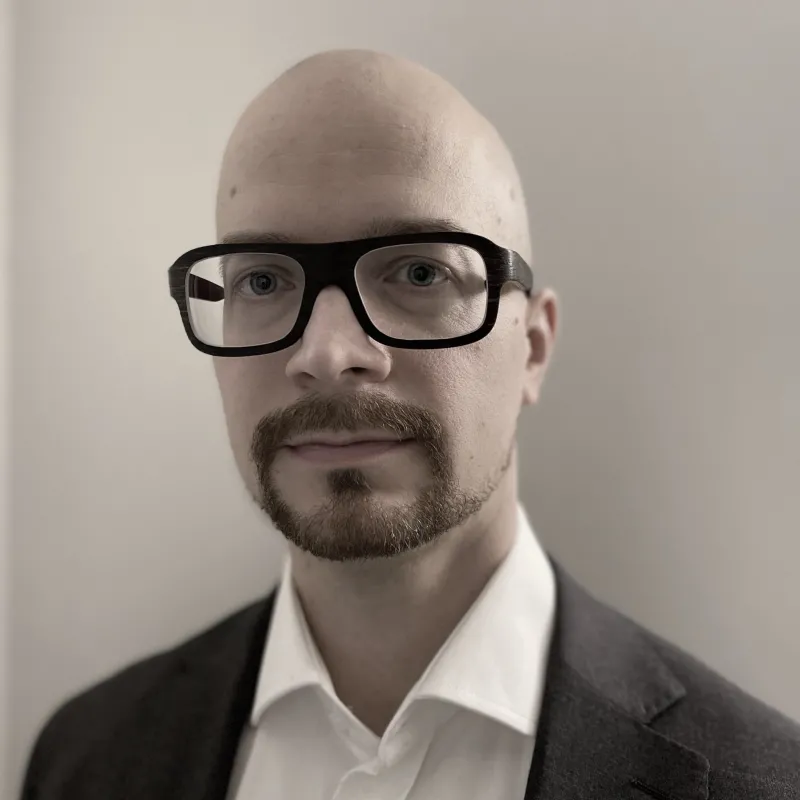Tuomas Skriko

Biography
Since 2020, D.Sc. (Tech) Tuomas Skriko has been the head of the Welding Technology unit at LUT University. Beginning December 2022, he acted as Associate Professor, a position that was elevated to a tenure track professorship beginning May of 2023. With 68 publications (35 peer-reviewed and 2 non-refereed scientific articles, 1 book chapter, and 30 other publications), he has an h index of 10 and 12 in Scopus and Google Scholar rankings, respectively.
Associate Professor Skriko has been active in acquiring and implementing various research projects funded by Business Finland, the European Regional Development Fund, the European Social Fund Plus, Interreg Aurora Cross-Border Cooperation, the European Neighborhood Instrument Cross-Border Cooperation, and The Emil Aaltonen Foundation. Total external funding awarded to projects in which he has participated as a principal investigator, project manager or group member over the last ten years is over 5 M€.
Associate Professor Skriko has collaborated with other LUT Mechanical Engineering and School of Energy systems units in many different projects. He has connections with several national and international universities and research institutes. In terms of education, he has been a leading innovator in the development and harmonization of the new curriculum for LUT Welding Technology, which includes bachelor’s, master’s, and post-graduate level courses. He has been the first or second supervisor of more than 80 theses: 6 D.Sc.(Tech.), 55 M.Sc.(Tech.), and 21 B.Sc.(Tech.).
Associate Professor Skriko enjoys a wide professional collaboration and interaction network in domestic and international global welding industry companies such as Kemppi, Pemamek, Andritz, Ponsse, John Deere, Škoda Transtech, Sandvik Mining and Construction, and Junttan. In addition, he has researched within the Dimecc FAME ecosystem in the field of additive manufacturing, and he also has a close connection to the Welding Society of Finland (nominated to its board in 2022) and the International Institute of Welding (a member since 2012).
In order to achieve this, a high quality of working must be carried out in each level of the production chain. In addition to general standards and guidelines for the quality assurance of welding and weld joints, extensive concepts for analyzing and governing the quality of design and manufacturing of welded metal structures should also be considered. These can be utilized when producing welded structures from different metal materials, such as high and ultra-high strength steels, aluminums and stainless steels, of which use has increased during past decades in the engineering industry due to their potential and possibilities in terms of payload capacity, structural durability, energy efficiency, emission control, life cycle management and recycling. However, applying novel metal materials causes often stricter rules for design, narrower parameter windows for manufacturing (especially for welding) and more specific precepts for quality assurance and inspection compared to corresponding structures made of conventional materials. Consequently, the management of the production chain by means of digitalization is emphasized in these types of demanding welded structural applications.
- Welding Technology courses
- Steel Structures courses
- Mechanical Engineering core courses
Lecturer and examiner (continuing education) in IIW/EWF Programmes at LUT University since 2012.
- IWE / IWT: International Welding Engineer / Technologist degree programme
- IWSD: International Welded Structures Designer degree programme
- IMORWP: International Mechanized, Orbital and Robot Welding Personnel degree programme
- RWC-S: Responsible Welding Coordinator (level Specific) degree programme
Researcher information
Keywords
Automatized and intelligent welding
Digitized welding production
Welding quality
Welding metallurgy
Weldability
